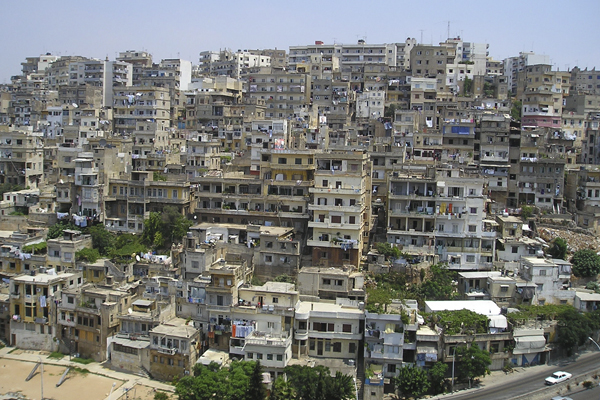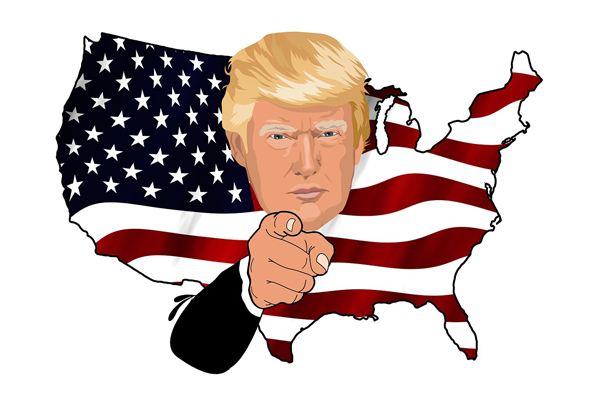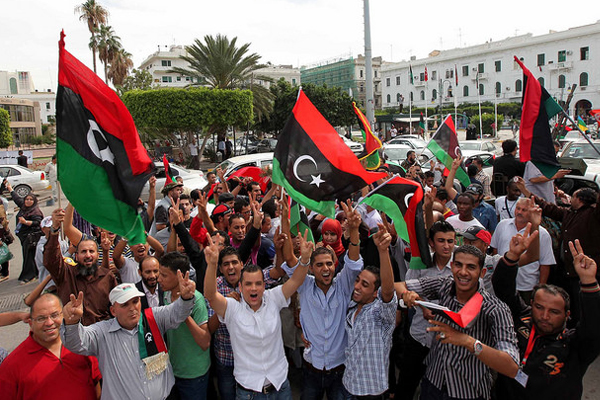
Category: Mashriq+
The Trump effect, an article by B. Mikail (In French)
Living with Bashar: The Battle for Idlib (French)
Minorities in Syria: Realities and future, by B. Mikail and C. Roussel (French)
Al-Amin: “Parliamentarian elections won’t change the Lebanon” (Arabic)
Kinan al-Yassine: “Syria will recover thanks to its youth” (Spanish)
The reality of Suweida and the future of Syria: a dialogue with K. Yassin (Arabic)
Iraqi Elections 2018: An Interview with Nazli Tarzi

On May 12th, Iraqis will vote to choose their 329 members of parliament who will in turn elect Iraq’s next President and Prime Minister. But looking at the situation today, it seems obvious that the number of candidates running for parliamentarian elections has dropped significantly compared to what was four years ago. In 2014, there were 9,040 candidates; this time round, they are 6,904 only, with around 90% of them being incumbent or veteran politicians. This is part of the reasons why the turnout may end up being much lower than in 2014, when 60% of the eligible voters had casted their ballot.
To understand better what is at stake in Iraq, and what may happen with these elections, Stractegia had this interview with Nazli Tarzi, an independent multimedia journalist based in London. Nazli is the producer of the short film “Forever Running: The Quiet Death of Physicians in Iraq”, and she writes on Middle Eastern politics and culture with a focus on Iraq. She had been nominated for the ‘New Journalist of the Year’ (2017) award” at the International Media Awards hosted by The Next Century Foundation.
Stractegia: According to the Iraqi law, citizens must vote in the provinces where they are registered as voters. But with the existence of many Internally Displaced People (IDPs) that are often very far from their homes and provinces, what possible outcome may we have for Iraq’s parliamentarian elections?
Nazli Tarzi: The government’s list of priorities has soared ever since the genesis of Daesh in June 2013 and the aftermath of the liberation of Mosul city. Establishing polling stations on top of the rubbled remains of ‘liberated’ cities has obvious limits. Besides, no accurate IDP figures are available so far, though Homeland estimates place their number as high as 4 million IDPs out of a population of around 39 million people. Their inability to vote – an entire constituency – will skew the results. A low turnout would have been expected regardless in light of the electoral boycott campaign popular across Sunni-majority provinces, but calls for boycott will not be followed by all the members of this sect.
Stractegia: In 2005, when Iraq ran its first parliamentarian elections, almost all the Shia parties had run under a single electoral list, the way Kurdish parties did too. This pattern of alignment by sect has collapsed since then. For example, Arab Sunni parties have failed to agree on running under a single list in 2018, further dividing the Arab Sunni vote. Why do you think that the political landscape is evolving that way?
NT: The claim that sect alignments would have collapsed is reductive, unable to capture the shifting sands of Iraqi homeland politics. While Iraq is moving beyond western imposed narratives of “Sunnis versus Shia”, the sect-card is one dealt by numerous parties – and it remains largely beneficial to the elite, not the masses. The other card that has been played reinforces the tyranny of political numbers: the one that considers that some Iraqis would represent a “majority” or “minority” group – an attitude that serves the post-2003 elite. But this doesn’t capture widely shared sentiments of anger and disillusionment, that cut right through sectarian divisions (real and perceived).
Shi’i and Kurdish blocs have been in power since Saddam Hussein was toppled, which naturally required collaboration with an illegal occupying force. Certain Sunni figures were either sidelined, tricked, or chose to sit it out, having seen America’s future plans. Adamant that no opposition would stand in their way, America and its new allies in the new Iraq needed window dressing Sunni figures to sell a convincing lie to the world, where they would say: ”See! Iraq is far better off now. It has a functioning democracy”.
Sunni oppositional figures are not part of the process. Any level of inclusion on their part suggests that they accept the political process. The matter concerns their personal integrity, rather than an “inability to agree”. Lest we forget, the Sunni vote is captured by Ayad al-Allawi, who won his wafer-thin victory against tyrant Nouri al-Maliki during elections in 2010. Maliki was crowned Prime Minister for the second term, Sunnis chose to vote for a secular Iraq (whose Shi’i identity was of little relevance). The same Sunnis claim their votes were robbed. It’s like peeling away abnormally large onion; the layers of complexity are endless. People of this persuasion will tell you: whether you are Sunni, Shia or Kurd, the moment one enters the political process, they have no choice but to align. If one sinks, so does the other. This is about the constant need to resuscitate a faltering system – new names, same faces – rather than calling it by its name: A failed state.
It might be worthwhile looking at the composition of electoral alliances to see that the Sunnis have formed a list, Allawi has a mixed list, and Abadi claims that his list is mixed; but this encompasses divisive or dogmatic figures, at least as far as local communities are concerned.
Stractegia: What do you make on the Kurdistan Democratic Party’s decision to boycott Iraq’s elections in Kirkuk and the Kurdish areas outside Iraqi Kurdistan? And what about the call of the Kurds to boycott elections in Kirkuk and in Kurdish areas that are located outside of Iraqi Kurdistan?
NT: Empty threats, but further evidence that KDP is now weighing up all available options in the aftermath of Kirkuk’s recapture by state forces last year. Disputes over budgetary spending also enraged KDP officials whose feelings of betrayal have hardened, which too, could have inspired the shift in strategy.
But other explanations to answer your questions also exist. In previous electoral cycles, Kurdish parties have combined their campaigning energies under a single electoral list as a step closer towards consolidating regional autonomy. The situation, post-independence-bid, has since changed, and the emergence of new and smaller Kurdish parties can threaten the duopoly (Talabani vs Barzani) that has emerged across the Kurdistan Region of Iraq (KRI) since 2003. The victory of any group outside of these two dominant camps, KDP feels, could expose KRI to new risks. Other candidates have been harassed by Iraqi forces and by the Popular Mobilization Units (Hashd) paramilitaries, whose violent behaviour has dissuaded them from running; this is at least what my sources inform me.
The vote in Kirkuk, a PUK stronghold, will be key to who governs. KDP will not be the only actor in Kirkuk that calls for electoral boycott. Boycott is a strategy intended to deprive the rival of gaining the power and legitimacy they require to govern. In this context, boycott also sends a strong message to other candidates, that KDP is displeased by the military presence of militias forces in and around Kirkuk. KDP, once a friend to Baghdad, is afraid that more is being done to fragment rather than to unify the country, as Kurdish PM Nechirvan Barzani said recently.
Stractegia: It seems that Saudi Arabia is trying to engage with senior Shia politicians as well as Sunni ones. From their perspective, what would the best outcome be?
NT: Saudi Arabia engages because it is expected to do so by America, but it doesn’t have much of a plan other than backing different horses, wishing for the best, and funneling funds to others Baghdad dislikes under the guise of reconstruction. This is a worn-out game. Saudis hope that the Abadi-backed al Nasr (Victory) alliance ends up being this year’s winner, but they are still wasting their money on distrusted tokenized Sunni figures, like Khamis Khanjar.
Stractegia: While Al Sadr derives his strength from Shiite political Islam, he is carrying a secular banner this time. Will he be able to appeal to voters disillusioned by the exploitation of religion for political gains, as well as voters who are sick of Iranian meddling in the country?
NT: The first claim is a view often touted as gospel by western media. Sadr comes from a long line of religious scholars – his family will always be revered but it has no bearing on Muqtada al Sadr’s persona; he crafted this himself. Sadr is great at mobilising the Iraqi street, but the strategy beyond that falls short. He waves the retributive finger at the elite in Baghdad but fails to recognise how he is part and parcel of the same establishment. He has entered into a crafty alliance with the communists (Sairoon). In 2014, the communists only secured 3 seats, they hope that with Sadr’s backing bigger, doors of opportunity will be unlocked. To assume that Sadr has no ties to Iran is a little naive. He’s at the bottom of Iran’s list of priorities, but not someone feared by the Iranian regime, as some pundits allege. Sadr is a renowned opportunist, notorious for switching sides.
Stractegia: Former prime minister Nouri al-Maliki, the leader of the State of Law Coalition that had stepped down in 2014, is seeking political comeback. Where does he stand from senior Iraqi Shia politicians, fron Saudi Arabia as well as from Iran?
NT: Maliki’s political, economic and historic ties to Iran are well established; this, coupled with an abrasive ideology, makes him an undesirable and divisive figure. His autocratic tendencies will not be welcomed, or accepted, by the Iraqi street, Sunnis and Shias alike; as one resident said, ”Maliki is the ring leader in Ali Baba’s gang of forty thieves”. Should he win – a rather unlikely scenario -, we may then witness the revival of Iraq’s Spring Movement.
As for Saudi Arabia, exhibiting animosity towards Saudis has become a spoken policy in Iraq, particularly under Maliki. Under Abadi, we saw greater rapprochement, but also a greater failure, due mainly to the Saudi side. Saudis also recognise that remaining on the sidelines remains a far costlier, albeit safer option. Until those in power in Baghdad can signal to Saudis that Sectarian based-rule is not the correct way of conducting politics, relations will remain strained.
Maliki, some claim, still holds Saudi Arabia and its American partners responsible for his replacement. Iran will always be Maliki’s patron, and while they continue to support his, they have several others loyal pillars to lean on among the running candidates. As for senior Shi’i politicians, there would be a lot to say too.
Stractegia: While PM Al Abadi declared that he was open to long-term American training programs for Iraqi forces, some of his opponents have adopted a much harder line, describing US forces in Iraq as occupiers. What has been the approach taken by the U.S towards this election?
NT: America has been drawing down troops following the 2009 controversial “SOFA” agreement – after which the UNSC-authorised US presence in Iraq expired. This week, it concluded major ground combat operations in the country. The way it happened before, the United States will always find new legal covers to justify its prolonged – yet unwanted – presence in the country.
Interview conducted by Ronny Nehme, research assistant at Stractegia
What Possible Future for Iraq? Interview with Ali Baydar

What possible future for Iraq? Despite the presence of many possible scenarios, here is the point of view of Ali Baydar, an Iraqi journalist who sees that:
- Iraq is almost done with Daesh;
- Unfortunately, taking into consideration the important role that militias have now, the end of Daesh will not necessarily put an end to violence in general;
- There are five different categories of militias in Iraq, but the most worrying of them may be the ones placed under Iranian influence;
- The future of the Kurdish issue will not necessarily engage the Iraqi society in a large-scale conflict;
- Interference in Iraq’s affairs from countries such as Iran and the USA have negative consequences;
- The Iraqi society is divided and this situation is risky for the future;
- We have to wait and see if Iraqis are really ready to go beyond their official slogans and to act in a way that serves national unity.
What follows is the full interview, led in Arabic.







